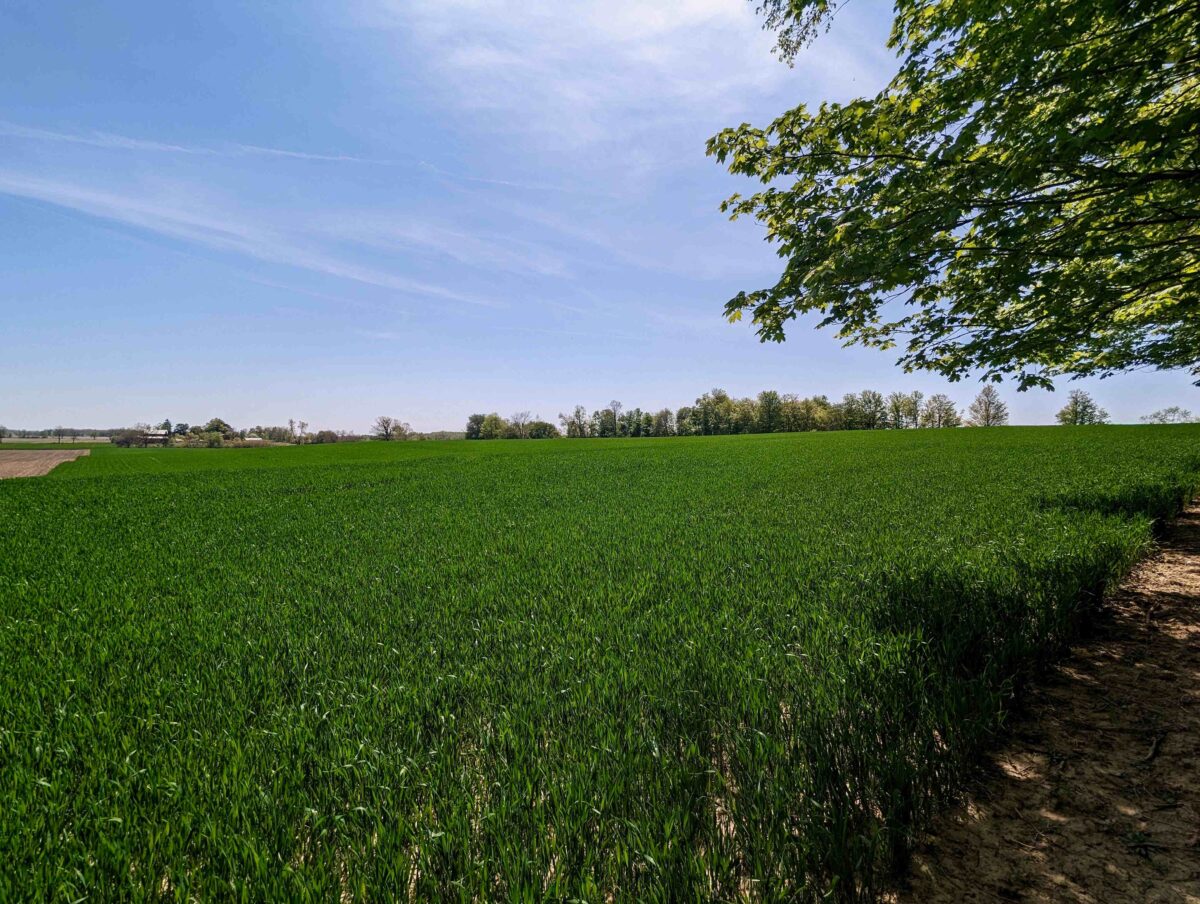Overview:
-A USDA grant would have allowed the Legacy Land Conservancy to finance conservation easements on 4,000 acres of land.
-Conservancy representatives say the grant is crucial for Southeast Michigan, where farmers facing rising costs may be compelled to sell their land to developers, reducing the acreage available to grow food.
-"This can be a lifeline for a lot of people," says Legacy Land Conservancy's Krista Gjestland.
A southeast Michigan conservancy working with landowners to protect habitat and farmland said it lost a $24.6 million grant after the U.S. Department of Agriculture told the conservancy it switched the funding source from the Farm Bill to the Inflation Reduction Act.
The Ann Arbor-based Legacy Land Conservancy is appealing the USDA’s decision not to finalize the grant, saying the funding was made available in the 2024 Farm Bill and appropriated by Congress. The grant’s new IRA funding was largely erased as part of the One Big Beautiful Bill Act.
Susan LaCroix, Legacy’s land protection director, said that after the grant was cancelled, USDA staff told her it had been reclassified as IRA-funded.
Legacy declined to share USDA emails and letters with Planet Detroit, citing the advice of its lawyer.
The USDA did not respond to a request for comment.
The Regional Conservation Partnership Program, or RCPP, grant would allow Legacy and its nonprofit and government partners to finance conservation easements on 4,000 acres of land in Washtenaw, Jackson, Livingston, and Lenawee counties.
These easements pay landowners and allow them to retain ownership but put certain rights, like development rights, in trust. The RCPP grant covers 50% of the cost, while the other 50% is paid with local millages and private funders.
Conservancy representatives said the grant is crucial for Southeast Michigan, where farmers facing rising costs may be compelled to sell their land to developers, reducing the acreage available to grow food. This could also imperil forests and wetlands needed to protect waterways and biodiversity.
The loss of these conservation easements would hurt small farmers, where land is often one of the few resources they can leverage to support their growing operations or cover other needs, Krista Gjestland, Legacy’s development and communications director, told Planet Detroit.
“This can be a lifeline for a lot of people,” she said. “It can mean their retirement, because for most farms there’s no 401(k) attached. It can help send kids to school.”
MORE PLANET DETROIT REPORTING
Michigan Climate Investment Hub launches at Newlab to drive clean energy financing, collaboration
By co-locating at Newlab, groups like Michigan Saves and Lean & Green Michigan hope to accelerate investment in energy efficiency and renewables.
Michigan’s environmental regulator holds east side workshop after civil rights complaint on Stellantis permit
Michigan’s environmental regulator agreed to hold an informational meeting with the community around the Stellantis plant in its informal resolution with the EPA of a civil rights complaint.
Can 957 signatures halt a $1 billion data center in Augusta Township?
Residents of Augusta Township rally to submit 957 signatures, aim to let voters decide on the rezoning of land for a data center.
Cuts imperil Michigan agriculture, land for beginning farmers
Legacy’s work preserving farms and natural areas will continue if it loses its appeal, but the loss of the grant would diminish its impact at a crucial moment, those working with the group said.
“(This) would have blown the doors open for a lot more great conservation work,” said Barry Lonik, a land conservation consultant who previously served as executive director of Legacy’s predecessor organization.
Lonik estimates the conservancy is protecting roughly 1,000 acres a year.
The counties included in the grant lost 88,000 acres of farmland and non-industrial private forest between 1992 and 2022, a 12.7% decrease, according to a blog post from Legacy. This area represents 3.5% of the state’s land but is home to 10% of Michigan’s beginning farmers and over 26% of its Black or African American growers, the group says.
Michigan is second to California in the diversity of its crop production, and the state’s agricultural-related exports totaled $2.9 billion in 2024.
While Legacy and its partners are the only Michigan recipients of an RCPP grant in this funding cycle, previous grants have been used to protect trout streams in the northwest Lower Peninsula and reduce methane emissions from Michigan dairy farms.
Legacy is one of 69 groups that lost a combined total of more than $1 billion in RCPP grant funding this year, according to Progressive Farmer, an agricultural trade publication.
Helping farmers vital for climate change response, waterway protection
Farm Bill funding has been especially critical in recent years as aging farmers struggle, according to Legacy’s LaCroix.
The Trump administration’s tariffs are increasing the cost of potash, a fertilizer that is generally imported from Canada, and threatening billions of dollars in exports of soybeans, dairy products, processed foods, and other products, Bridge Michigan reports.
“Having Legacy purchase our conservation easement, using money from the award, was going to protect our farm forever and give us some extra money to help pay off all our bills and debts,” Cathy Harsh, a Lenawee County landowner who was to receive RCPP grant funds, said in a June press release from the conservancy.
Harsh and her sister struggle with the increasing cost of living and limited farm income, and the conservation easement would help them retire more securely, she said.
Legacy’s Gjestland said protecting local food systems is also critical for responding to the climate crisis.
The United Nations Framework Convention on Climate Change identified local food systems as an important buffer from food disruptions caused by climate risks, price fluctuations, policy changes, and conflict.
Gjestland said that protecting farms also often means protecting forests and wetlands that filter rainwater before it enters waterways and the Great Lakes — and these ecosystems also help sequester stormwater to prevent flooding.
Legacy is not anti-development, but rather “pro-thoughtful development,” she said, adding that the region needs to grow in a way that protects people and ecosystems.
“We need to make sure that what we’re doing is going to leave, at least, a net-neutral if not a positive impact on the future.”
🗳️ Civic engagement
Why it matters
⚡ Michigan groups have used USDA RCPP grants to fund land conservation, protect waterways, and reduce climate warming emissions from farms.
Who’s making decisions
🏛️ An administrative law judge from the USDA’s National Appeals Division will hear Legacy’s appeal on Sept. 22. According to the Penn State Extension, the NAD oversees appeals for several programs and services within the USDA, but the agency doesn’t necessarily have to honor a judge’s ruling.
A representative for NAD told Planet Detroit that appeal hearings are not public.
How to take civic action now
✉️ Contact the USDA. By email: feedback@usda.gov
Mail: U.S. Department of Agriculture, 1400 Independence Ave., S.W., Washington, DC 20250
What to watch for next
🗓️ The judge will make a determination on Legacy’s appeal within 30 days of the Sept. 22 hearing.





